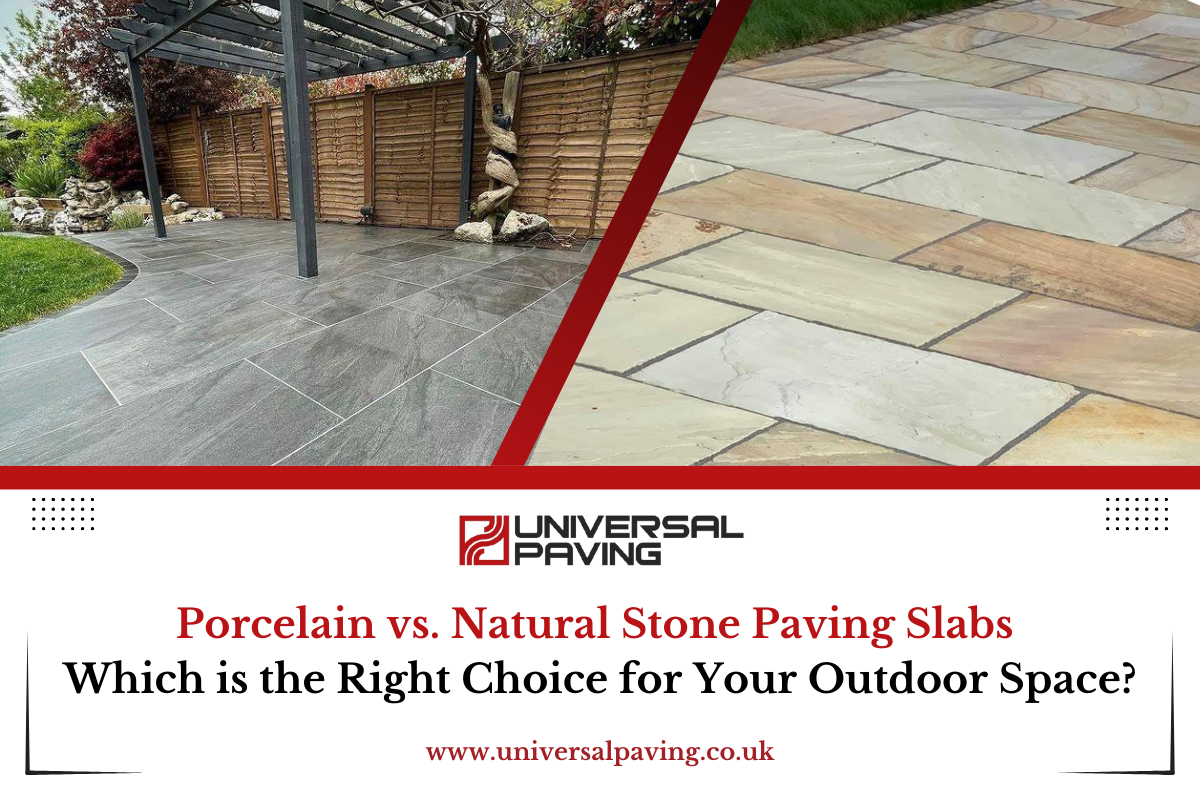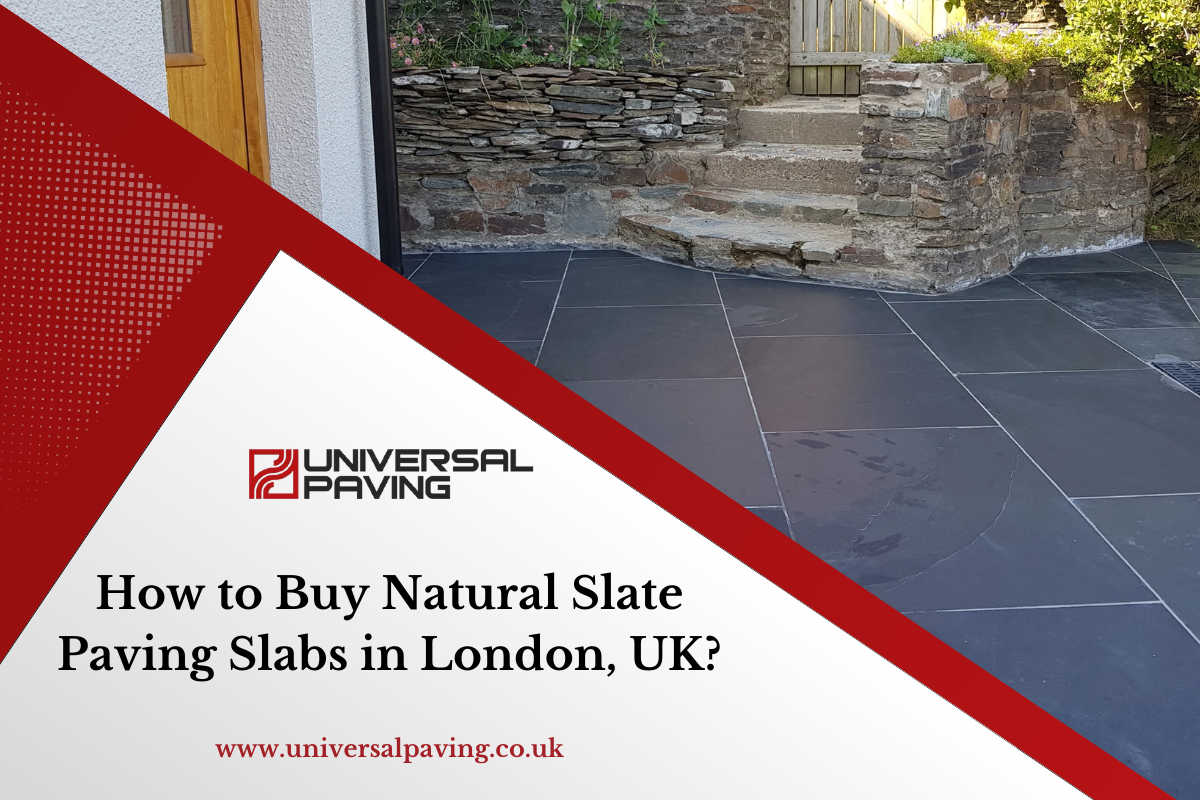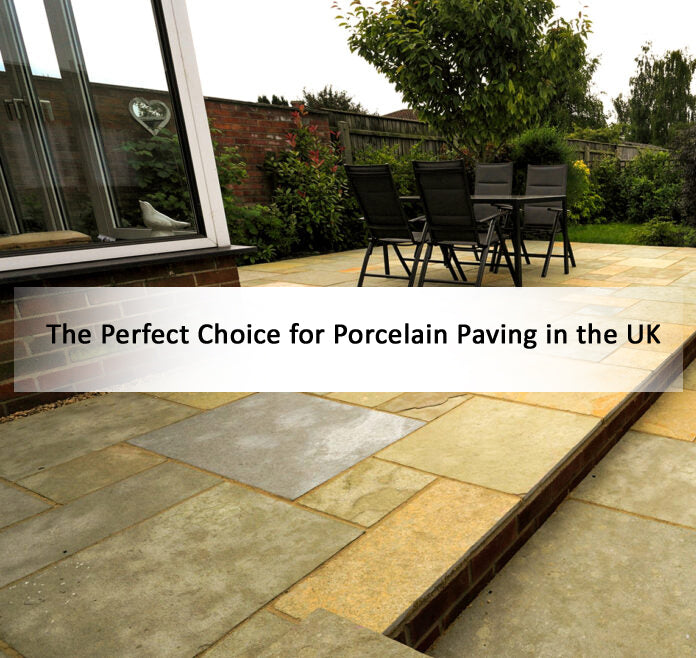
Porcelain vs. Natural Stone Paving Slabs: Which is the Right Choice for Your Outdoor Space?
As someone who loves spending time outdoors, I know how important it is to have a beautiful and functional outdoor space. One of the key elements of any outdoor space is the paving slabs. Not only do they provide a foundation for your outdoor furniture and decor, but they also play a major role in the overall aesthetic of your space. When it comes to choosing between porcelain and natural stone paving slabs, there are a number of factors to consider. In this article, I'll explore the pros and cons of each option and provide you with the information you need to make the right choice for your outdoor space.
Introduction to Outdoor Paving Slabs
Outdoor paving slabs come in a variety of materials, including concrete, brick, and natural stone. They are used to create a level surface in outdoor areas such as patios, walkways, and driveways. Paving slabs can be made from a variety of materials, each with their own unique characteristics. The two most popular options are porcelain and natural stone.
The Pros and Cons of Porcelain Paving Slabs
Porcelain paving slabs are made from a type of ceramic that is fired at a high temperature to create a dense and durable material. Porcelain is a popular choice for outdoor paving because it is resistant to staining, fading, and frost damage. Here are some of the pros and cons of porcelain paving slabs:
Pros
- Low Maintenance: Porcelain paving slabs are incredibly easy to maintain. They can be cleaned with a pressure washer or a mild detergent, and they do not require sealing.
- Durability: Porcelain is a very strong and durable material. It can withstand heavy foot traffic and is resistant to cracking and chipping.
- Aesthetics: Porcelain paving slabs come in a wide range of colors and patterns, so you can find the perfect option to complement your outdoor decor.
Cons
- Cost: Porcelain paving slabs are generally more expensive than natural stone options.
- Slipperiness: Porcelain can be slippery when wet, which can be a safety hazard in areas around pools or where children play.
- Installation: Porcelain paving slabs are heavier and more difficult to install than some other options, so installation costs may be higher.
Also, read: How to Buy Natural Slate Paving Slabs in London, UK?
The Pros and Cons of Natural Stone Paving Slabs
Natural stone paving slabs are made from quarried stone, such as granite, sandstone, or limestone. Stone is a popular choice for outdoor paving because it is natural, durable, and has a timeless look. Here are some of the pros and cons of natural stone paving slabs:
Pros
- Aesthetics: Natural stone paving slabs have a unique and natural beauty that can't be replicated by other materials. They come in a range of colors and textures, so you can find the perfect option to match your outdoor decor.
- Durability: Natural stone is a very strong and durable material. It can withstand heavy foot traffic and is resistant to cracking and chipping.
- Cost: Natural stone paving slabs are generally less expensive than porcelain options.
Cons
- Maintenance: Natural stone paving slabs require regular sealing and cleaning to maintain their appearance and prevent staining.
- Frost Damage: Some types of natural stone, such as sandstone, can be susceptible to frost damage if not properly sealed and maintained.
- Color Fading: Over time, some types of natural stone can fade in color due to exposure to sunlight.
Also, read: Light Grey Porcelain Paving Slabs: Elevate Your Outdoor Space to New Heights
Factors to Consider When Choosing Between Porcelain and Natural Stone
When choosing between porcelain and natural stone paving slabs, there are a number of factors to consider. Here are some of the most important:
- Budget: Porcelain paving slabs are generally more expensive than natural stone options, so your budget may be a deciding factor.
- Aesthetics: Both porcelain and natural stone options come in a range of colors and textures, so it's important to choose an option that complements your outdoor decor.
- Durability: Both porcelain and natural stone options are durable, but porcelain may be a better choice in areas with heavy foot traffic or where slipperiness is a concern.
- Maintenance: Porcelain paving slabs require less maintenance than natural stone options, but natural stone can be more forgiving if not properly maintained.
Conclusion: Making the Right Choice for Your Outdoor Space
When it comes to choosing between porcelain and natural stone paving slabs, there is no one-size-fits-all answer. It's important to consider your budget, aesthetic preferences, and the specific needs of your outdoor space. At Universal Paving, we offer a wide range of high-quality natural stone and porcelain paving slabs to suit any outdoor space. Whether you're looking for a timeless natural stone option or a sleek and modern porcelain option, we've got you covered. Contact us today to learn more about our products and services.
Also, read: Ultimate Guide to Choosing and Installing Grey Sandstone Paving Slabs for Your Landscape


























































